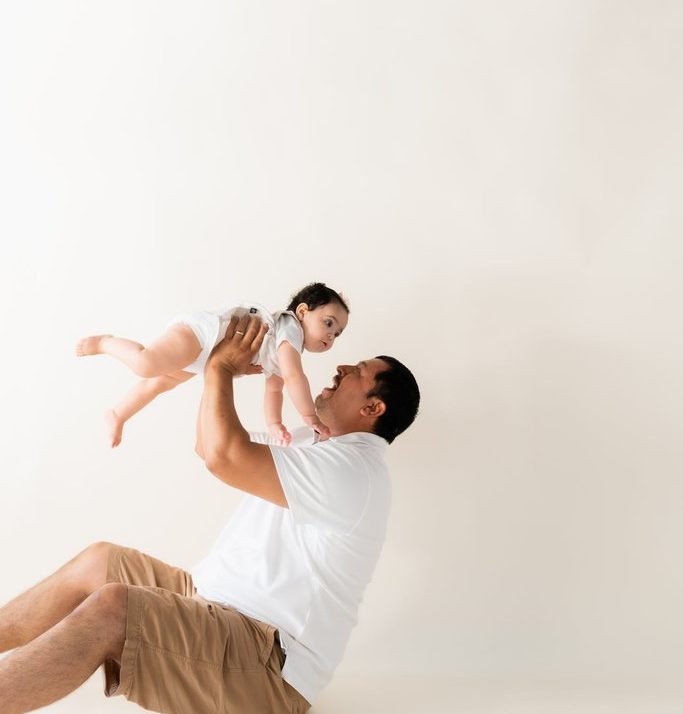
In your baby’s first year, there are loads of milestones to look forward to, but one of the coolest has to be when they start recognizing and responding to their name. There’s nothing like that happy feeling when your little one turns their head after you call them!
Keep reading to get the lowdown on when babies usually start recognizing their names.
Understanding Developmental Milestones
Babies usually catch on to recognizing their names between 4-9 months old. Once they’ve got the hang of it, you’ll see them consistently looking your way or reacting when you call them.
From 7 months onwards, they’ll start paying attention to where different sounds are coming from, and by 9 months, most babies will turn their heads when you call their name.
How to Boost Your Baby’s Name Game
Ever wondered how to help your baby recognize their name? First up, repeat their name. Drop it in everyday chats while giving them eye contact—it helps them get familiar with the sound. Changing your tone helps them pick up on communication vibes.
Another way to boost up the game is by narrating your actions. Seriously! Explaining stuff, even the mundane like changing diapers and prepping their food, is like language exposure 101, according to Pediatrician Kisten Cook.

Reading and singing? That’s the secret sauce. It not only broadens their vocab but also boosts their brain power. And guess what? Those adorable coos and babbles? They’re building blocks for your baby’s language skills. So, enjoy them!
When to Seek Guidance
Dr. Cook notes that language skills can develop at different rates for each baby, so if your little one takes a bit longer, that’s usually okay. If you’re ever worried, just chat with your pediatrician.
Raise Confident Children With the Following Three Things
Kids start learning from the moment they’re born. They must learn basic life skills like eating, sleeping, and walking, but that’s not all. They must also build character, and that’s easier said than done. Without a doubt, any parent wants their child to be confident. To achieve it, a sense of confidence must be fostered from a very early age. So, how can parents ensure their kids are self-confident?
A Professional Opinion
 Parents can follow the advice of Roseanne Lesack, Ph.D. – a child psychologist and director of the Unicorn Children’s Foundation Clinic at Nova Southeastern University in Florida. She said the following three things will definitely help:
Parents can follow the advice of Roseanne Lesack, Ph.D. – a child psychologist and director of the Unicorn Children’s Foundation Clinic at Nova Southeastern University in Florida. She said the following three things will definitely help:
Tie Ethics With Success
Parents must learn that building a healthy work ethic in their child is far more important than winning a soccer game or getting straight A’s at school. In other words, one needs to make kids feel that effort is much more valuable than result. Of course, that doesn’t mean one shouldn’t praise success. Don’t make the kid feel ashamed if they’ve tried and failed. Once a parent teaches their child that effort is more valuable than success, they get one step closer to raising a confident adult.
 Be Confident in Order to Build Their Self-Esteem
Be Confident in Order to Build Their Self-Esteem
Confident children come from parents who value themselves. One shouldn’t be shy or ashamed to talk about their qualities as a person. Talk about your successes and accomplishments. When you’ve achieved a goal, Lesack says, you can emphasize that you’ve accomplished it after a lot of hard work and dedication. She also suggests that parents must model positive self-talk to build a sense of self-confidence. As you know, children absorb everything. They’ll definitely absorb such positive behavior.
Compliment Kids on Their Skills
 Confident children appreciate their skills. Of course, parents must teach their kids to value their skills. Don’t just say, “You’re great,” while your kid plays a soccer game. Instead, find specific things you really liked in their game and emphasize things like, “I really liked the footwork you did just before scoring the second goal.” Compliment a kid on key moments during their game, or any other activity, for that matter. In addition, Lesack suggests presenting kids with the chance to appreciate their strengths with specificity.
Confident children appreciate their skills. Of course, parents must teach their kids to value their skills. Don’t just say, “You’re great,” while your kid plays a soccer game. Instead, find specific things you really liked in their game and emphasize things like, “I really liked the footwork you did just before scoring the second goal.” Compliment a kid on key moments during their game, or any other activity, for that matter. In addition, Lesack suggests presenting kids with the chance to appreciate their strengths with specificity.
Of course, those three things are not everything you need to do to build confidence in a kid. Things are more complex than that. Think of what makes you feel confident, and you’ll get a clear picture of what you need to do to make your kids value themselves.